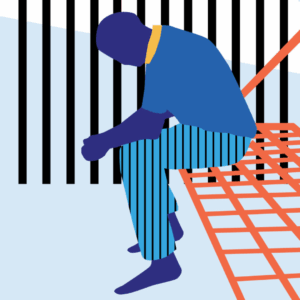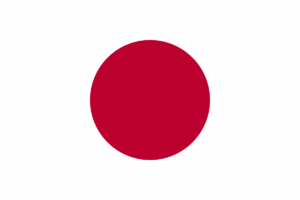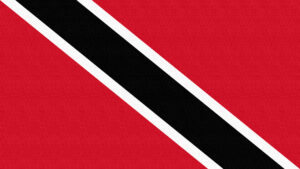
PRESS RELEASE: British National at risk of the Death Penalty in DRC
- News
- 25 Jun 2024
Today a court in the Democratic Republic of the Congo (DRC) decided that a British National, Mr Youssouf Ezangi, should be tried in a military tribunal, in breach of his constitutional rights. Mr Ezangi faces charges that may result in a death sentence.
Refusing bail for the accused, the trial has been adjourned to 1 July 2024 where the prosecution will present its case. If convicted and sentenced to death, Mr Ezangi would join approximately 800 people on death row in the DRC. Following the government lifting a 20-year moratorium on the death penalty in March this year, Mr Ezangi and his co-accused would be at serious risk of execution.
Background
Following an incident in the early hours of 19 May 2024, several news outlets reported that there had been an attempted coup d’etat in the DRC. A group of approximately 50 men attacked the Palais de la Nation, which contains Presidential offices, and the residence of the then-Economy Minister Vital Kamerhe. Two police officers, four militants and one civilian were killed. The attacks received widespread media attention.
The apparent orchestrator of the attacks died during the incident. Christian Malanga, a Congolese national who had become a naturalized American, had founded a US-registered party, the United Congolese Party, in 2010 and referred to himself as the “president” of the New Zaire Government in Exile.
Mr Ezangi was arrested during the attack, along with 50 other individuals. They face multiple charges, including terrorism, murder and possession of weapons and ammunition. The punishments for these offences range from 20 years in prison to the death penalty.
Treatment and Legal Proceedings
All 51 suspects, including Mr Ezangi, will now stand trial in a military tribunal. The first session of the hearing today was broadcast live from N’dolo military prison, raising concerns that this will be a show trial – serving as an example and a warning to others, and compromising the fair trial rights of the accused.
There have been concerns of torture and mistreatment following arrest. At a hearing on 18 June 2024, lawyers for Mr Ezangi filed a memorandum raising concerns that alleged confessions, following his arrest, were given after he was tortured. There have also been complaints of the general conditions in which the individuals involved have been held. During today’s hearing the military tribunal rejected the requests to declare the confessions inadmissible, on the basis that they had been obtained through torture.
Lawyers representing Mr Ezangi challenged the forum arguing that a civilian court should hear the case. The Constitution of the DRC stipulates that only members of the National Police or the military can stand trial before a military tribunal. Lawyers representing Mr Ezangi argued that he does not fall into this definition and therefore cannot be tried in a military tribunal. In a ruling today, the military tribunal disagreed, holding that it had jurisdiction to hear the case.
Mr Ezangi’s lawyers have raised concerns about their ability to freely represent their client, given the highly politicised nature of the case. The United Nations, in their Basic Principles on the Role of Lawyers, require that when representing those accused of a crime, lawyers are able to give advice and assistance “…without intimidation, hindrance, harassment or improper interference” and should not be identified with their clients’ cases when discharging their role.
Commenting on the case, Saul Lehrfreund, Co-Executive Director at The Death Penalty Project said
“These are incredibly serious allegations, and it is vital that all procedural and constitutional rights are respected. We are deeply concerned about the plight of Mr Ezangi and his co-defendants. The Universal Declaration of Human Rights enshrines the principles of equality before the law, the presumption of innocence, the right to a fair and public hearing by an independent and impartial tribunal, and all the guarantees necessary for the defence of everyone charged with a penal offence. These rights must be respected in this case and as Mr Ezangi is not a member of the armed forces, he cannot and should not be tried by a military tribunal – the right to be tried before a properly constituted court is fundamental in international law.”
Commenting on the death penalty, Saul Lehrfreund states
“The Democratic Republic of the Congo has had a long-standing moratorium on executions lasting some 20 years. The charges which Mr Ezangi and his co-accused face are of the most serious nature, however the government must back down from its proposal to resume executions, which is out of step with regional and international trends. In 2023, only two of the 55 countries in the African Union carried out executions. The majority of the world’s nations now recognise that the death penalty is inherently arbitrary and violates the right to life and the prohibition on cruel and inhuman punishment.”
Notes to editors
The Death Penalty Project
The Death Penalty Project (DPP) is a legal action NGO based at, and supported by, London legal firm, Simons Muirhead Burton LLP. The organisation has special consultative status before the United Nations Economic and Social Council. DPP provides free representation to people facing the death penalty worldwide. It uses the law to protect prisoners facing execution and promote fair criminal justice systems, where the rights of all people are respected.
Capital Sentences in DRC
The Democratic Republic of the Congo retains capital sentences in its ordinary and military law. In 2023, approximately 33 people received a death sentence, with over 800 people being held on death row. The last execution in the DRC was in 2003, following which a moratorium on executions was imposed.
Following an announcement in March 2024, the DRC’s Minister of Justice formally notified the judiciary of the government’s decision to resume executions for a series of crimes. The government justified its decision by the need to combat “treason” at a time when the DRC is facing an escalation of armed conflicts and gang violence in several cities, including the capital Kinshasa.
The method of execution in the DRC is by firing squad, if convicted by a military tribunal, and hanging, if convicted by a civilian court. The Penal Code allows the President to designate the method of execution.
















